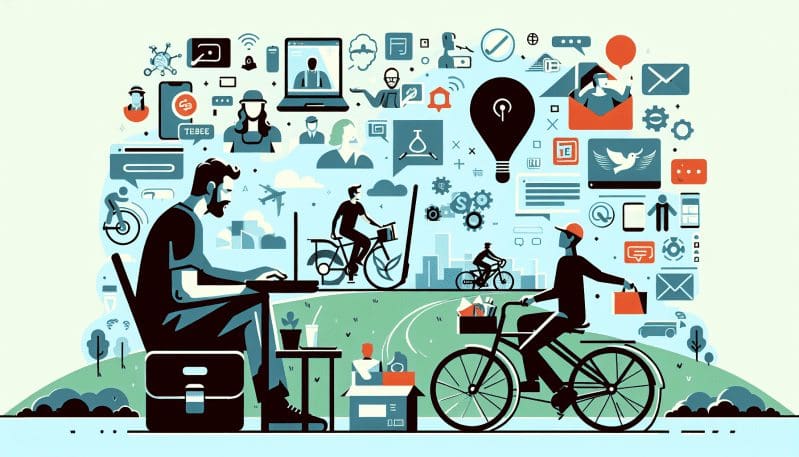In recent years, the term ‘gig economy’ has become as ubiquitous as the freelancers it describes. Heralded by some as a liberating shift from the traditional 9-to-5 grind and critiqued by others as a destabilizing force in the labor market, the gig economy signifies a seismic change in the way we view employment, job security, and workers’ rights.
As we stand on the brink of what could be the largest shift in work culture since the Industrial Revolution, we are forced to ask: Is the gig economy a bubble poised on the edge of bursting, or is it the natural progression of a tech-driven world?
At the core of the gig economy is the rise of the independent contractor, free from the constraints of a fixed employer but also devoid of the benefits and protections traditionally afforded to employees. The appeal is clear: flexible hours, autonomy, and the freedom to choose projects align with a growing desire for work-life balance. However, this independence comes with a price. Job security is a thing of the past for gig workers, and the feast-or-famine nature of freelance work can make it difficult to plan for the future.
Worker rights, too, have come under scrutiny in the freelance-dominated landscape. Without the collective bargaining power of a traditional workforce, gig workers are often left to fend for themselves, making it challenging to secure fair pay and safe working conditions. This disparity raises concerns over the potential for a new kind of digital divide, where only those who can navigate and afford the precariousness of freelance work will thrive.
Companies, too, are in the midst of adapting to this new reality. The rise of project-based hiring has led to a reevaluation of what it means to be an ’employee.’ This shift invites both opportunities and challenges. On the one hand, businesses can tap into a global talent pool without the overhead cost of full-time salaries and benefits. On the other, the transient nature of gig work can hinder the development of company culture and employee loyalty.
The role of technology in driving the gig economy cannot be overstated. Platforms like Upwork, Fiverr, and Uber have made it incredibly easy to offer and procure services on a freelance basis. However, as these platforms gain power and influence, it becomes paramount for them to take responsibility in creating fair and supportive environments for gig workers, ensuring the digital economy works for all participants.
Is the gig economy sustainable, or will it implode, leaving millions without reliable work? This question looms large over policymakers, businesses, and workers alike. The answer may lie in finding a middle ground—a hybrid model that offers the flexibility of freelance work with some of the security of traditional employment.
As we navigate the future of work, it is crucial for companies, workers, and society to engage in a constructive dialogue. We must strive to understand the forces at play, to mitigate the risks associated with the gig economy, and to harness its potential for innovation and growth. Only then can we ensure that the evolution of work benefits not just a privileged few, but all members of the workforce.
In conclusion, while the gig economy presents its own set of challenges and uncertainties, it represents a profound change in the fabric of our employment landscape. Whether we are witnessing a bubble that may soon burst or the birth of a new era in the world of work, our ability to adapt, legislate, and innovate will determine how we thrive in this freelance-dominated future.




























